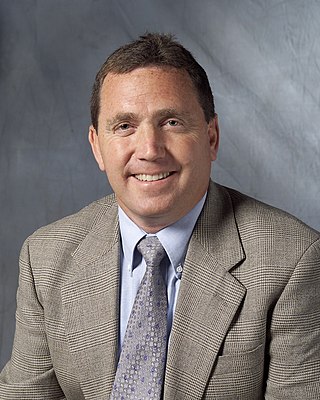
Benjamin David Santer is a climate researcher at Lawrence Livermore National Laboratory and former researcher at the University of East Anglia's Climatic Research Unit. He also worked at the Max Planck Institute for Meteorology from 1987 to 1992. He specializes mainly in statistical analysis of climate data sets, and detection/attribution of climate change forcings.

The University of East Anglia (UEA) is a public research university in Norwich, England. Established in 1963 on a 320-acre (130-hectare) campus west of the city centre, the university has four faculties and twenty-six schools of study. The university is a leading member of Norwich Research Park which has one of Europe's largest concentrations of researchers in the fields of agriculture, genomics, health and the environment. With an annual research spend of £130 million, it has over thirty businesses and four independent research institutes which support new companies and technologies.
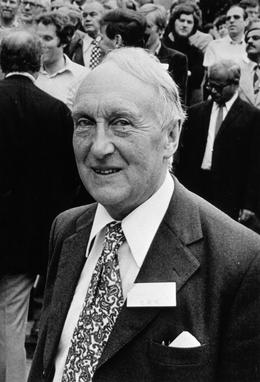
Hubert Horace Lamb was an English climatologist who founded the Climatic Research Unit in 1972 in the School of Environmental Sciences at the University of East Anglia.

The Climatic Research Unit (CRU) is a component of the University of East Anglia and is one of the leading institutions concerned with the study of natural and anthropogenic climate change.
John Francis Brake Mitchell OBE FRS is a British climatologist and climate modeller.

Ernest Ronald Oxburgh, Baron Oxburgh, is an English geologist, geophysicist and politician. Lord Oxburgh is well known for his work as a public advocate in both academia and the business world in addressing the need to reduce carbon dioxide emissions and develop alternative energy sources as well as his negative views on the consequences of current oil consumption.
Climate Audit is a blog founded in 2005 by Steve McIntyre.

Jonathan A. Jones is a professor in atomic and laser physics at the University of Oxford, and a fellow and tutor in physics at Brasenose College, Oxford.
Michael Joseph Kelly FRS FREng is a New Zealand-British physicist. He was Prince Philip Professor of Technology in the Department of Engineering of the University of Cambridge from 2002 to 2016.
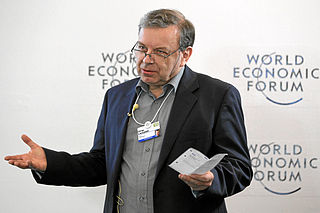
Sir Philip Henry Montgomery Campbell is a British astrophysicist. He served as editor-in-chief of the peer reviewed scientific journal Nature from 1995 to 2018. From 2018 he was the Editor-in-Chief of the publishing company Springer Nature until his retirement in May 2023.
Tom Michael Lampe Wigley is a climate scientist at the University of Adelaide. He is also affiliated with the University Corporation for Atmospheric Research. He was named a fellow of the American Association for the Advancement of Science (AAAS) for his major contributions to climate and carbon cycle modeling and to climate data analysis, and because he is "one of the world's foremost experts on climate change and one of the most highly cited scientists in the discipline." His Web of Science h-index is 75, and his Google Scholar h-index is 114. He has contributed to many of the reports published by the Intergovernmental Panel on Climate Change (IPCC), a body that was recognized in 2007 by the joint award of the 2007 Nobel Peace Prize.
The Climatic Research Unit email controversy began in November 2009 with the hacking of a server at the Climatic Research Unit (CRU) at the University of East Anglia (UEA) by an external attacker, copying thousands of emails and computer files to various internet locations several weeks before the Copenhagen Summit on climate change.
HadCRUT is the dataset of worldwide monthly instrumental temperature records formed by combining the sea surface temperature records compiled by the Hadley Centre of the UK Met Office and the land surface air temperature records compiled by the Climatic Research Unit (CRU) of the University of East Anglia.

Climatic Research Unit documents including thousands of e-mails and other computer files were stolen from a server at the Climatic Research Unit of the University of East Anglia in a hacking incident in November 2009. The documents were redistributed first through several blogs of global warming deniers, who alleged that the documents indicated misconduct by leading climate scientists. A series of investigations rejected these allegations, while concluding that CRU scientists should have been more open with distributing data and methods on request. Precisely six committees investigated the allegations and published reports, finding no evidence of fraud or scientific misconduct. The scientific consensus that global warming is occurring as a result of human activity remained unchanged by the end of the investigations.
Michael Hulme is Professor of Human Geography in the Department of Geography at the University of Cambridge, and also a Fellow of Pembroke College, Cambridge. He was formerly professor of Climate and Culture at King's College London (2013-2017) and of Climate Change in the School of Environmental Sciences at the University of East Anglia (UEA).
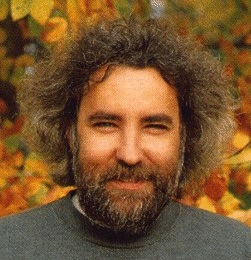
Keith Raphael Briffa was a climatologist and deputy director of the Climatic Research Unit. He authored or co-authored over 130 scholarly articles, chapters and books. In his professional work, he focused on climate variability in the late Holocene, with a special focus on northern portions of Europe and Asia. Briffa's preferred method was dendroclimatology, which is a set of procedures intended to decode information about the past climate from tree rings. Briffa helped develop data sets from trees from Canada, Fennoscandia, and northern Siberia which have been used in climate research.
Freedom of Information requests to the Climatic Research Unit featured in press discussions of disputes over access to data from instrumental temperature records, particularly during the Climatic Research Unit email controversy which began in November 2009.
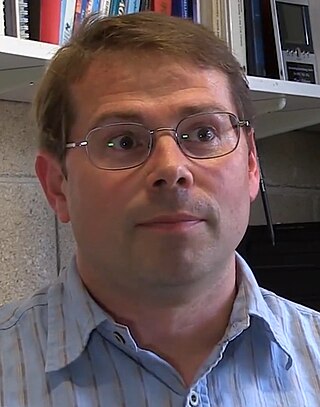
Timothy John Osborn is a climatologist and Professor of Climate Science at the University of East Anglia. In January 2017 he replaced Phil Jones as the Research Director of the Climatic Research Unit.
Venkatachalam Ramaswamy is the Director of the Geophysical Fluid Dynamics Laboratory of the National Oceanic and Atmospheric Administration (NOAA) Office of Oceanic and Atmospheric Research (OAR), studying climate modeling and climate change. "A leading climate scientist", his work is cited as supporting evidence for significant stratospheric climate change. He focuses in particular on radiative transfer models and the hydrologic cycle in the atmosphere. He has actively supported the development of supercomputing approaches that enable researchers to achieve higher resolution and greater complexity in climate models. As a lead author involved in the Intergovernmental Panel on Climate Change (IPCC), Ramaswamy's contributions was recognised by the joint award of the 2007 Nobel Peace Prize to the IPCC.

Lisa J. Graumlich is an American paleoclimatologist who studies the interactions between the climate, ecosystems and humans. She is the inaugural dean of College of the Environment at the University of Washington. Graumlich is a Fellow of the American Association for the Advancement of Science and the Ecological Society of America, and is president-elect of the American Geophysical Union.










